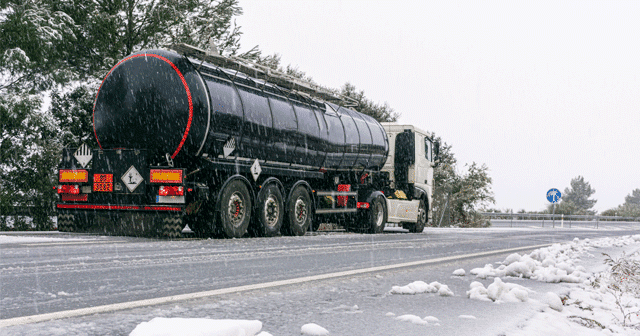Nobody at the Wheel: A Look at the U.K. Trucker Shortage

Energy deliveries in the United Kingdom have slowed to unseen levels. While there’s a global supply crunch, Great Britain faces a more immediate problem: a lack of qualified drivers to deliver the energy supplies it does have.
How did this happen?
Like many disruptions in both the U.K. and the European Union, it starts with Brexit. The split suppressed foreign trucking, along with foreign investments. That alone posed a problem.
In addition, over the years, pay and benefits decreased, making the profession less desirable to U.K. residents entering the workplace. That might’ve been surmountable through public and private incentives, but then COVID-19 hit. As in the United States, the average age of U.K. semi-trailer drivers skews older, and many took the pandemic (with its decreased refined fuel demands) as an opportunity to retire. But the pandemic had a follow-up punch: new students couldn’t safely gather in classrooms to learn the myriad factors and procedures involved in operating a tanker fully-loaded with combustible materials.
Other energy issues
Coupled with disruptions caused by Russia’s refusal to allow NatGas to flow to European countries unless they bow to political demands, the U.K. faces an energy shortage of cataclysmic proportions. But — like a late-night TV infomercial — wait, there’s more.
Another issue: aggressive climate change policies were put into practice without thoroughly exploring the likely consequences. As a result, many small energy-producing companies — and to our point, their drivers — have gone out of business. While everyone wants to arrest climate change for future generations, we still must care for those currently inhabiting the planet.
Efforts are underway to train the next generation of drivers, but these processes take time. After all, no one wants to be in front of an 11-tonne tanker trailer driven by someone who just strapped in yesterday. The British government is relaxing work visa rules to entice EU drivers into crossing the channel, but given the deteriorating conditions of truck stops, long hours, and low benefits, it’s uncertain how many takers the U.K. will get. In a desperate attempt to keep fuel on the road, the government even activated army troops to deliver fuel.
In the meantime, U.K. residents are bracing for a cold winter; one in which heating fuel and petrol may be in short supply.
The global response
Global energy markets will be watching closely to see how and when the U.K. adapts, and where opportunities to meet those needs will present themselves. Energy producers in the United States, in particular, could see profitable export opportunities, but those depend on their own supply chain and inflationary pressures.
Need help?
Better manage your current challenges with help from DTN. We deliver cutting-edge solutions and actionable insights to support U.S. and European suppliers, wholesalers, terminals, and traders. Explore our offerings.










 Comprehensive weather insights help safeguard your operations and drive confident decisions to make everyday mining operations as safe and efficient as possible.
Comprehensive weather insights help safeguard your operations and drive confident decisions to make everyday mining operations as safe and efficient as possible. Learn how to optimize operations with credible weather and environmental intelligence. From aviation safety to environmental compliance, our comprehensive suite of solutions delivers real-time insights, advanced forecasting, and precise monitoring capabilities.
Learn how to optimize operations with credible weather and environmental intelligence. From aviation safety to environmental compliance, our comprehensive suite of solutions delivers real-time insights, advanced forecasting, and precise monitoring capabilities.